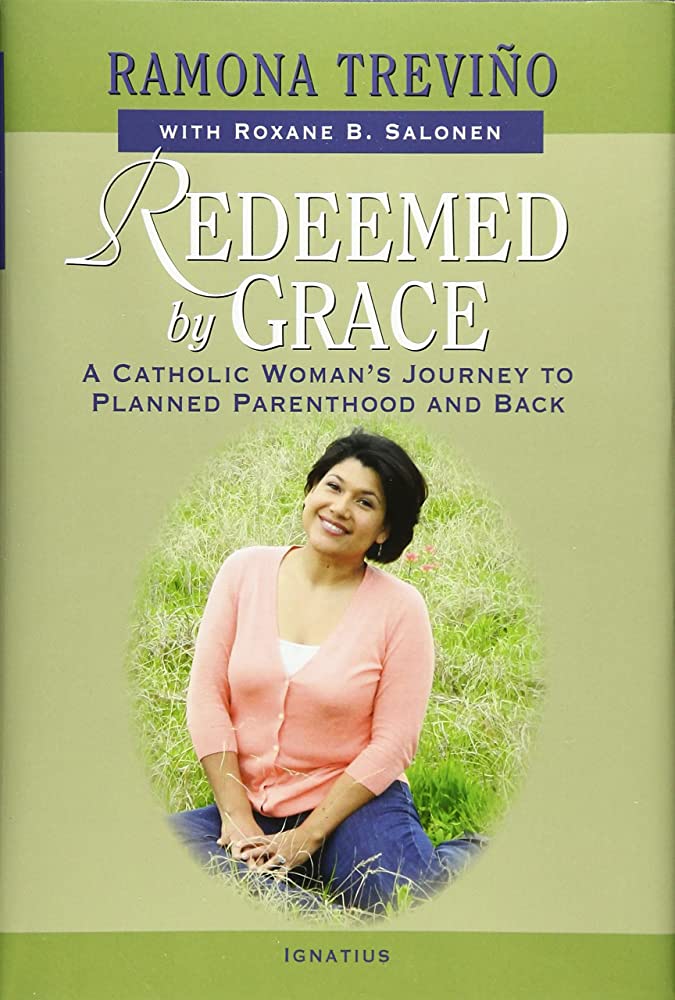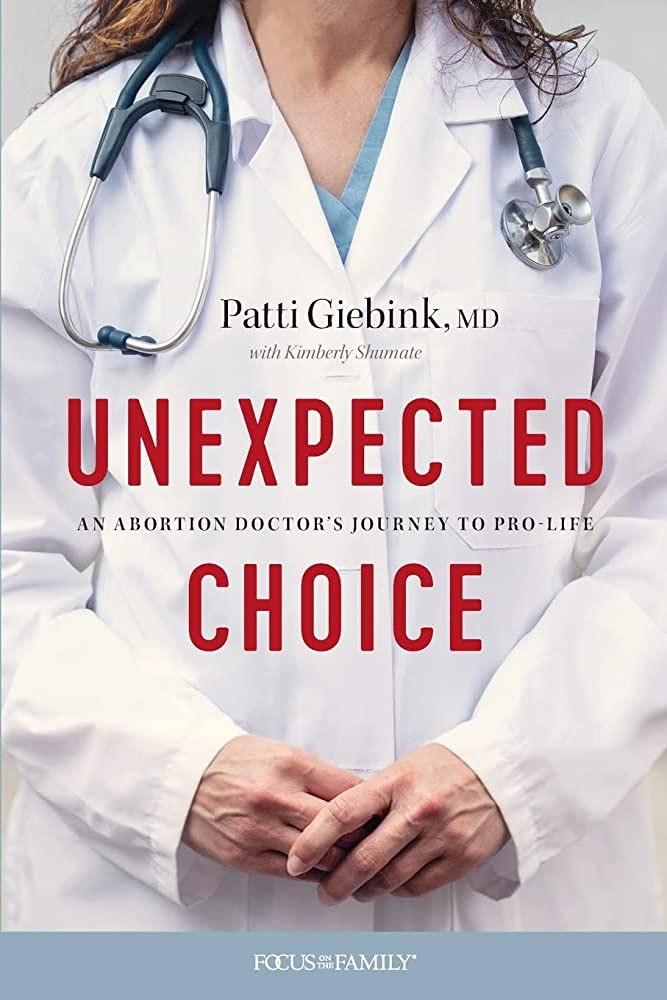My Reading Life: The Abortion Books, Part 5 (Personal "Anti-Abortion" Stories)
Having “crossed over” from one side of the abortion debate to the other during my life, I continue to find stories of political, personal, or moral “conversion” compelling. I also wanted to be fair to both sides, to read from both sides, and to do my best to keep my heart open to both sides. The two “anti-abortion” personal stories I read elicited both empathy and frustration from me.
Redeemed by Grace: A Catholic Woman’s Journey to Planned Parenthood and Back by Ramona Trevino

In anti-abortion circles, Planned Parenthood seems to be synonymous with Satan, even though it provides dozens of services outside of abortion. The immediate assumption from the subtitle of the book is that Ms. Trevino converted from a “pro-choice” to a “pro-life” position during the course of her work with Planned Parenthood, but that’s not the case. Ms. Trevino makes it clear from the start that she is anti-abortion. She experienced a crisis pregnancy at age 16, which led her to marry a man who was abusive. When she finally extricated herself from that relationship, she was drawn to Planned Parenthood because she hoped she could help other girls avoid the hardship she endured. However, she is only willing to work at her facility because it does not perform abortions; women wanting abortions must be referred to another location.
She feels a lot of anxiety over providing abortion referrals, and her story is sympathetic as one of someone who finds her job responsibilities conflicting with her personal ethics. But this book really lost me when Ms. Trevino allowed conservative Catholic radio to begin dictating her morals, never bothering to fact check any of what it taught about contraception. (For example, the depo shot does not cause miscarriages. She also referred to the Guttmacher institute as the “research arm” of Planned Parenthood even though the two officially separated decades ago.) She ultimately came to swallow the Catholic line about birth control contributing to a “culture of death” and being part of the “slippery slope” that ends in acceptance of abortion. While this is an intriguing moral argument, it has no basis in fact. It’s well documented that access to birth control reduces abortion rates and that “abstinence only” education, which Ms. Trevino comes to see as the “solution” to teen girls’ risky sexual behaviors and flagging self-esteem, are an abysmal failure.
Ms. Trevino’s willingness to turn a blind eye to reality in favor of the world she wants to exist ended up making this a really off-putting read for me. It also was not the “conversion” story I expected. In it, we have a woman who was always anti-abortion (but moderate) and then went through the more radical shift to also become anti-contraception. Honestly, the moral stakes just felt so low here. That’s why I felt compelled to add yet another book to my abortion books self-study …
Unexpected Choice: An Abortion Doctor’s Journey to Pro-Life

“What changed me? Was it people carrying around disturbing photos of abortions just to make a point? The anti-abortion zealots calling me names and threatening my life? Was it the activists loitering outside my clinic, yelling hate through the window? That couldn’t be the reason because the more they tried to stop me, the more determined I was to continue.”
– Patti Giebink, “Unexpected Choice.”
Patti Giebink performed abortions for the only Planned Parenthood facility in my state before she had a professional and personal falling out with her supervisor and left. First off, can I just say that it was really refreshing to read an anti-abortion perspective from someone who actually understands what abortion is? Dr. Giebink doesn’t just throw out buzz-words, but instead gives medical definitions for some of those that conservatives throw around with such abandon (such as what a “partial-birth abortion” actually is). She lays out the details of her clinic work with, well, clinical detachment, and she also makes it clear that during this point in her life she was running in pro-choice circles. After her second marriage ended, she moved across the state by herself and was encouraged to join a conservative Christian church. Dr. Giebink found community there, began to engage spiritually with scripture and with the ideas presented by her church’s “take” on it, and gradually came to regret her role performing abortions.
I kept waiting for the moment when her conversion became clear, but it’s kind of murky and gradual. She mostly says that she came to realize that the Christian god is a “God of Life” and, in interpreting everything from conception onward as “life,” could no longer adhere to pro-choice sentiments. She repented of her role providing abortions, and then aligned herself with the political powers that tried to make abortion illegal in South Dakota (I wonder if she’s sleeping peacefully at night now).
Because she has personal experience with abortion healthcare, she does not demonize those who are pro-choice the way other “pro-life” books do. Overall, her take is more nuanced than a lot of what comes from this side, and she openly condemns preaching a shaming attitude toward abortion from the pulpit. Dr. Giebink and I could find a lot of common ground if we ever met for coffee.
And while I can respect her moral conversion and her desire for others to reach the same conclusions that she has, I get off the bus with equating a change in your own morals to the need to legally enforce those morals on everyone else. It also very much feels as if the Christian community that has embraced her also uses her as a sort of “token,” trotting her out as a “success story” on radio talk shows and mega-church rallies. Really, they want to reduce her to someone who repeats the party line, when it’s clear that her take is more complicated than that.
I also took issue with the chapter in this book where she trots out a lot of “false equivalency” research, including studies that have not been published in peer-reviewed journals (because she claims everything secular has a “liberal” bias). That was frustrating to me, as I would expect her to understand the importance of solid research and the danger of misrepresenting shoddy research as such. It just brings up this question again for me: for people who are vehemently anti-abortion, why is the moral argument not enough for them to make their case? Misrepresenting reality is one of the things that ultimately drove me away from the anti-abortion perspective, and caused me to generally mistrust many who remain within it.
I should also note that both anti-abortion books were published by religious publishers (Ignatius Press and Focus on the Family, respectively), so the particular biases within them were not surprising.
That brings me to the end of my (non-exhaustive) “abortion reading list” and I’m taking a much needed break from it. (But you’d better believe I’m still going to be showing up to vote with this issue in mind.) I’ll write another post summing up some of my final thoughts on the project.
My previous posts:
Introduction / Academic Books / Fiction / Pro-Choice Personal Stories